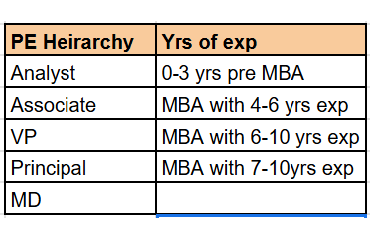
You’ve probably heard the buzz about remote jobs, how they’re the future, how they can save you hours of commute, and let you work from that cozy corner of your home. But beyond the catchy headlines, how do you actually land a remote job in India in 2025? Especially when competition is fierce and the job market keeps evolving. Let’s unravel this together, shall we?
What’s the remote job landscape like in India right now anyway?
Before we jump into tips, a little context will help. In 2025, remote work in India is no longer a temporary arrangement but a structural shift. Companies like Stripe, Salesforce ecosystem specialists, and tech firms based in Bengaluru and Pune actively seek remote product managers and specialists, as highlighted by job listings on platforms like AplusHub. Demand for remote roles is booming, especially in tech, product management, sales, and compliance fields. Salaries for remote product managers can range quite high, reflecting serious investment in remote talent.
But here’s the catch: many of these roles expect more than just a good internet connection and a laptop. They want evidence you can thrive in a remote environment, communicate asynchronously, and deliver results without constant supervision. That’s why understanding the game’s rules is crucial.
How can you make your remote job search less of a shot in the dark?
You might feel overwhelmed with dozens of job boards, LinkedIn alerts, WhatsApp groups, and career sites screaming for your attention. Staying updated can feel like chasing a moving train. The real trick? Centralizing your search and being strategic.
Platforms like AplusHub consolidate remote jobs across domains and cities (like Bengaluru, Pune) into one accessible space, so you don’t have to jump from one place to another. Their AI-backed research team sources postings not just from job portals but company career pages, alumni networks, and social groups. So instead of scrolling endlessly, you get quality openings delivered bite-sized. You can even filter for roles with INR 72L+ compensation to focus your efforts.
Takeaway: Choose a reliable job aggregator or platform to keep your search streamlined and focused.
What kind of remote jobs are hot in India in 2025?
Tech-centric roles dominate: product management, software development, digital marketing, and data analysis. For instance, remote product manager jobs related to Salesforce, payroll solutions, and risk compliance are in demand on AplusHub. Even mid-level positions for associate product managers with 1-2 years of experience have plenty of openings if you’re starting out.
But it’s not all coding and dashboards. Roles like recruitment coordinators, executive assistants, content editors, and customer service specialists now feature prominently in work-from-home setups, expanding your chances.
The bottom line? If you can highlight domain expertise and demonstrate adaptability to remote tools, there’s a place for you.
How can you prove you’re remote-ready?
This is the million-rupee question. When employers hire remotely, they look for signs you’ll actually get the job done without onsite oversight. Here’s what can put you ahead:
-
Tech Savviness: Be comfortable with Zoom, Slack, Microsoft Teams, project management tools like Jira or Trello, and cloud platforms. Knowing how to collaborate digitally is non-negotiable.
-
Effective Communication: Since you won’t just pop over to a colleague’s desk, writing clear emails, summarizing meeting notes, and sharing updates proactively matters a lot. Showcase your ability to communicate async.
-
Self-Discipline: Time management and independent work without constant hand-holding. Mention examples where you delivered projects independently or managed deadlines remotely.
-
Portfolio & Metrics: For product managers, showing actual product outcomes, user engagement uplift, or process improvements with numbers can speak louder than claims.
What about networking – is it still relevant for remote roles?
Absolutely, yes. But it looks different. You can’t just pop into a corporate mixer or chat by the coffee machine anymore. Instead:
-
Use platforms that allow engagement beyond job applications. AplusHub Premium users, for instance, get access to direct interactions with industry professionals, headhunters, and TA (Talent Acquisition) teams.
-
Think about ‘cold referrals’ sending AI-crafted, professional referral requests directly to relevant people in your target company. It’s like knocking on the right doors without being pushy.
-
Join virtual events, webinars, and niche groups related to your field (like product management communities), which can be gold mines for insider info.
Should you invest in upskilling or certifications in 2025?
You bet. Remote roles can be fiercely competitive, so sharpening your skills can tip the scales. Certifications related to Agile, Scrum, Salesforce, product ownership, or cloud solutions give you credibility and sometimes are even required.
But here’s something you don’t want to miss: learning how to work remotely is a skill by itself. Communication, digital tools mastery, and remote project collaboration skills are equally important to polish.
How to tailor your resume and application for remote jobs?
General CV templates rarely work nowadays. When applying to remote roles:
-
Highlight any previous remote or freelance work explicitly.
-
Emphasize soft skills like communication, organization, and tech adaptability.
-
Quantify achievements relevant to remote work e.g., managed a distributed team of 10, improved engagement metrics while working from home.
-
Use keywords from the job description. Many companies use ATS (Applicant Tracking Systems) to filter applications, so the right phrasing helps you pass the initial screening.
-
Keep it concise but rich with impact. Remote employers value clarity.
What role does your home setup play, and how to address it?
Surprisingly, it’s a talking point. Having a quiet workspace, reliable high-speed internet, and necessary tech gear adds confidence to your candidacy.
If you’re transitioning from office to home, invest time in setting up a distraction-free spot. Mention it during interviews casually: “I have a dedicated home office with uninterrupted connectivity suited for collaboration around different time zones.”
Can remote jobs offer work-life balance or is it a myth?
It’s a bit of both. The flexibility of remote work can let you design your day, finish early, avoid traffic, or even juggle small personal tasks.
However, without boundaries, work can spill into personal time easily, causing burnout.
What helps? Setting clear daily routines, communication boundaries (“I’ll be offline after 7 pm”), and using productivity methods like the Pomodoro technique. Employers value candidates who show awareness of maintaining mental well-being while delivering quality work.
How to handle interviews for remote jobs? Anything special?
Yes, interviews for remote roles often test your ability to work independently, how you handle tech glitches, and your communication skills.
Tips:
-
Test your video conferencing tech beforehand.
-
Be ready to discuss scenarios where you’ve handled ambiguity or remote challenges.
-
Demonstrate enthusiasm and cultural fit despite being virtual, engaging warmly, and listening actively.
-
Prepare to share how you prioritize tasks, manage distractions, and collaborate with remote teams.
What if you don’t get replies after applying everywhere?
Don’t get disheartened. Many candidates apply blindly, hoping for luck. Instead, be strategic:
-
Use the platform’s premium features (like on AplusHub) to reach multiple specialized headhunters or TA professionals simultaneously.
-
Request referrals from colleagues or network contacts.
-
Follow up politely and keep your profiles updated.
-
Keep honing your skills and don’t hesitate to consider contract or part-time remote roles to build a track record.
Why should you consider platforms like AplusHub to land that dream remote job?
Job hunting is a full-time job itself, right? AplusHub’s AI-powered research digs deep into thousands of sources, bringing you:
-
Jobs directly from companies and headhunters.
-
Opportunities with good salaries (some INR 72L+).
-
Easy referral systems and direct contacts to recruiters.
-
A blend of information, career advice, and community insights.
By using such a platform, you’re essentially signing up for a smarter, less painful job search and more chances to find fits you didn’t even know existed.
Landing a remote job in India in 2025 isn’t about luck; it’s about knowing where to look, how to present yourself, and what skills to highlight. It will take some patience and persistence, but these tips and a reliable partner like AplusHub will bring you closer to your dream workspace without the daily commute hassle.
You’re in the driver’s seat. What’s your next job move?
Don’t stress about searching every career page or job site. Stay ahead with the latest opportunities from different sources right here!
Related Articles
You've gone through an education system that probably never taught you anything about professionalism, logical deconstruction, and comfort with ambiguity. You may have tremendous bookish knowledge, but lacking these three attributes is an immediate invisible red flag that will stop you from getting the job or the promotion you always wanted.
Let's throw some light on the top-5 common mistakes that highlight your lack of these attributes, and what you should be doing instead
- Showing up late without informing your interviewer/coordinator - there are genuine reasons one could be running late, but that needs to be duly communicated ahead of the planned interaction. Inform every marked on an invite, drop a text or give a call, but keep your stakeholders informed. Their time is as much valuable as yours.
- Turning up unprepared for the interview - if you are turning up unprepared, why is it that you are turning up at all? why waste your and interviewer's time? You are better off declining the opportunity, instead of ruining your reputation unnecessarily. You must invest 1 hour to read about the company, the opportunity, some information in the public domain and so on, if you have chosen to show up for an interview.
- Going silent instead of communicating effectively with your stakeholders - it might come as an insight but everyone knows you would evaluate multiple opportunities before chosing one, everyone knows that your decision might be influenced by your loved ones, and everyone is okay with your being unsure, but nobody likes to be left wondering about what might be happening. So, good, bad or ugly, communicate, communicate and communicate! You'll build more relationships that you ever thought, and you never know, one or more of these relationships may turn gold in the times to come.
- Rambling stuff that does not make sense - let us fill you in on another secret, nobody - not even the most successful individuals can know everything about everything in the world. So, when presented with topics/questions you have no clue about, you got to either draw parallels from what you have expertise on, rationally break down the information you are presented with to come up with simple yet logical answers, or admit you do not know anything about this but can talk about something relevant to the opportunity being discussed in detail.
- Demanding a bomb without a concrete rationale - the whole world is underpaid, friends! who doesn't want more, but that's not how it works. Your next compensation cannot ignore your current and/or previous compensations. If you chose to take a sabbatical, took an opportunity by taking a haircut, or become an entrepreneur that eventually did not work out, you have to make peace with your decision. Nobody else had a say in that! You can definitely demonstrate additional skills/knowledge that you acquired during this period (that surely has a value), but that value isn't the only figure on which your next compensation will be decided on. So, learn about the market standards and try to limit your ask within the broadly acceptable range.
Let’s be honest — job hunting today feels like swiping right on a dating app where no one ever replies. Employers can’t find the right talent, job seekers chase ghost listings, and somewhere between “We’ll get back to you” and “Position closed,” everyone loses their sanity.
Enter Aplushub — the career saver we didn’t know we needed.
Why Aplushub Exists
Born from the chaos of the modern job market, Aplushub was built on one bold idea — quality over quantity. It’s not just another job portal flooding you with random roles. It’s a curated ecosystem that blends AI precision with human insight to filter out the clutter and keep only what truly matters: authentic, relevant, and verified opportunities.
What It’s Solving
Aplushub is tackling the biggest pain in job search — noise. Fake jobs, expired links, spam recruiters, and endless scrolling are replaced by clean, credible listings. The platform categorizes openings into Free Jobs (posted directly by employers) and Premium Jobs (handpicked by Aplushub’s research team from trusted sources and networks). So, no more digital wild goose chases — only jobs worth your time.
Remote Jobs? Absolutely.
Whether you’re working from your couch in Chennai or a café in Manali, Aplushub’s got you covered. The platform features a dedicated Remote Jobs section — tailored for professionals who value flexibility. It connects you with employers who believe talent shouldn’t be tied to geography.
Why It’s a Win-Win
For job seekers, Aplushub is your career compass — one dashboard, hundreds of genuine opportunities, and no shady “DM for job” drama.
For employers, it’s a hidden gem. Posting is free, candidate access is simple, and you get applicants who are genuinely interested — not bots in disguise.
Bonus Perk: The *OpenBook* Advantage
Here’s where Aplushub really flips the script — OpenBook, its transparency-first feature. It gives job seekers a peek into real hiring insights, company trends, and recruiter updates, turning job search into a smarter, more informed experience. No more guessing what employers want; OpenBook hands you the inside scoop to make data-backed career moves.
The Price Tag (Spoiler: It’s Almost Free)
Aplushub keeps things real and affordable. You can explore its free tier, test-drive premium access with ₹50/Month, or go all in with ₹499 for a full year— basically less than your monthly coffee budget to land your next big opportunity.
So whether you’re hiring, hunting, or just tired of the chaos — Aplushub is here to bring sanity (and a smile) back to your career journey.
👉 Visit AplusHub.com — where jobs finally make sense.
Private Equity (PE) is one of the most coveted industries in finance. One of the highest paying industries, Private Equity (PE) attracts absolute creme-de-la-creme of MBA graduates, management consultants, and investment bankers. Also highly competitive, PE funds hire only a handful of investment professionals across levels in a year.
A+ research team has spoken to multiple PE professionals across domestic and global PE funds in India. In the table below, we have compiled average base compensation, variable (bonus) and carry components at blue chip global PE funds in India.
| Role | Yrs of exp | Large Global PE Funds (base salary) | Bonus (as a % of base) | Carry | |
| Analyst | 0-3 yrs pre MBA | $60K-$80K | 60-100% |
Notional Carry or LTI or Certain bonus is paid in the form of carry distribution in case of multi-billion dollar funds*
|
|
| Associate | MBA with 4-6 yrs exp | $100K-$150K | 80-100% | ||
| VP | MBA with 6-10 yrs exp | $200K- $250K | 90-120% |
Estimated 0.5%-2% of the carry pool for a multi billion dollar fund*
|
|
| Principal | MBA with 7-10yrs exp | $300K-$400K | 90-120% | ||
| MD | $500K+ | 100-150% | |||
| Notes: |
These figures are estimates of salaries at top global PE funds like Bain, Carlyle, TPG, Warburg Pincus, General Atlantic and the likes
|
||||
|
Buyout focused funds have 30-50% higher base salaires and respective bonuses
|
|||||
|
*These are estimates from the information gathered through our network; might change/vary with more data
|
|||||




